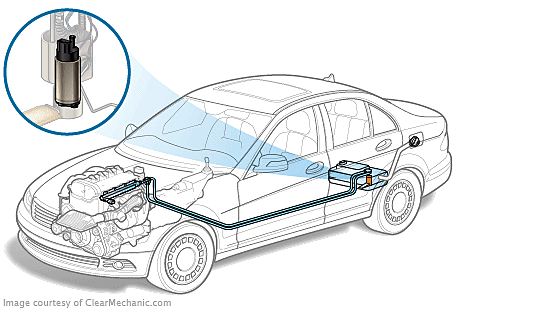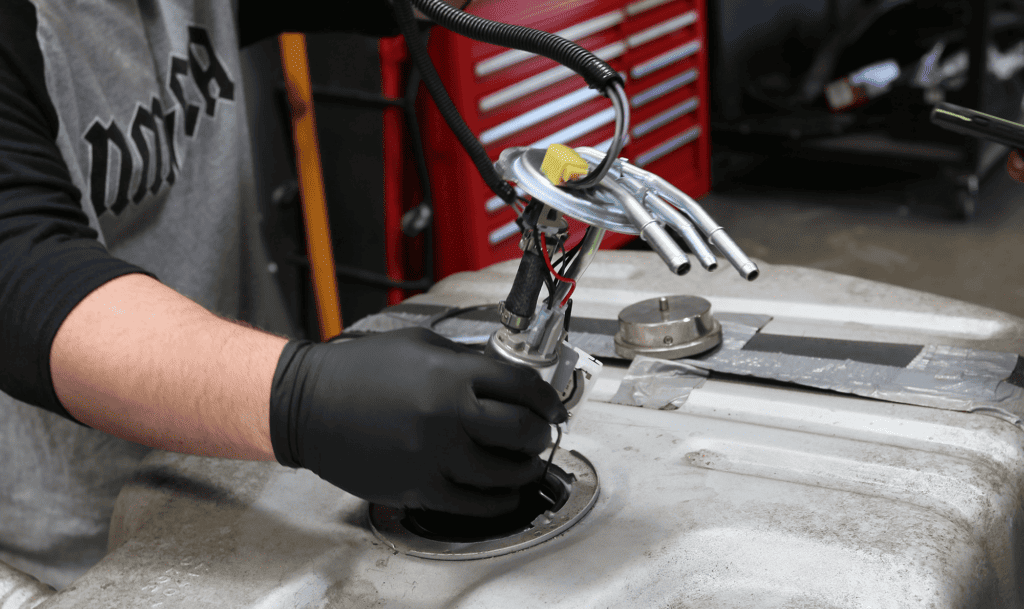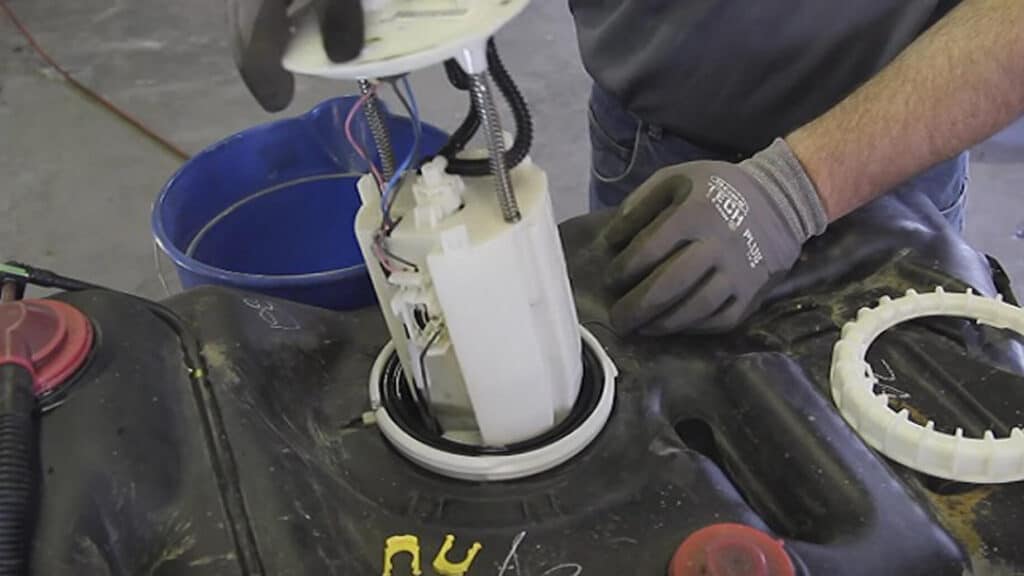What is a Fuel Pump and Its Function?
Imagine driving without an invisible friend who makes sure your car’s engine gets just the right amount of fuel at the right time. Welcome to the world of the fuel pump, a silent, but significant part of your vehicle. It’s the heart of your vehicle’s fuel system, circulating fuel from the tank to the engine at the precise pressure needed for optimal performance.
How Much Will it Cost to Replace a Fuel Pump in Canada?
The cost of replacing a fuel pump in the Great White North, Canada, can sting your wallet a bit. It’s not just about the part, which typically falls between $200 to $600, but there’s also labour to consider. You can expect to pay between $150 to $300 for the installation, which typically takes between 2 to 3 hours. So, that’s an average total cost ranging from $350 to $900. Now, that’s a pretty loonie, eh?

What are the Symptoms of a Faulty Fuel Pump?
The silent operation of the fuel pump might turn into some noisy clues when things start going south. Here are the signs to watch out for:
• Decreased Fuel Efficiency: One of the first signs of a faulty fuel pump can be a noticeable decrease in fuel efficiency. If your vehicle starts consuming more fuel than usual, it could be due to the pump not regulating fuel flow properly.
• Engine Misfires or Stalls: If the fuel pump isn’t delivering enough fuel to the engine, it may misfire or stall, especially under stress or while climbing hills.
• Difficulty Starting: A failing fuel pump may struggle to deliver enough fuel for the engine to start, causing the vehicle to turn over for an extended period before starting.
• Power Loss Under Stress: If the vehicle loses power while accelerating, climbing hills, or towing, it could be due to a faulty fuel pump.
• Engine Surging: If the fuel pump is delivering too much fuel, it can cause the engine to surge, giving the sensation of inconsistent acceleration.
• Noise from the Fuel Tank: A high-pitched sound coming from the area of the fuel tank could indicate a pump that’s on its way out.
• Check Engine Light: Many vehicles can detect irregularities in the fuel system and illuminate the check engine light. If this happens, it’s a good idea to have the vehicle diagnosed by a professional to identify the exact issue.
How Long Does a Fuel Pump Last?
An average fuel pump can keep your vehicle pumping between 100,000 to 200,000 kilometres. But remember, its longevity heavily depends on the quality of fuel used and regular maintenance.
How Does a Fuel Pump Become Defective?
• Age and Wear: Fuel pumps, like any other mechanical component, wear out over time. With constant use, the internal components of the pump can deteriorate, leading to reduced performance and eventual failure.
• Contaminated Fuel: Dirt, debris, or water in the fuel can cause damage to the pump over time. These contaminants can cause internal wear and corrosion, leading to pump failure.
• Running on a Low Fuel Tank: Frequently driving with a low fuel level can cause the fuel pump to overheat. This is because the fuel acts as a coolant for the pump, so when levels are low, the pump can get hotter than intended, leading to premature failure.
• Electrical Issues: The fuel pump is an electrically-powered component, so any issues with the vehicle’s electrical system, such as a weak battery or faulty wiring, can affect its operation.
• Poor-Quality Fuel: Lower-quality fuels may not provide adequate lubrication for the fuel pump, leading to increased wear and potential failure.
• Incorrect Installation: If a fuel pump isn’t installed correctly, it can lead to premature failure. This is why it’s important to have a qualified professional handle any replacements or repairs.

How Can a Faulty Fuel Pump Affect Engine Performance?
• Inconsistent Power Delivery: A faulty fuel pump may fail to provide consistent fuel flow to the engine. This could result in sudden power losses or surges during driving, affecting the smoothness and predictability of the vehicle’s performance.
• Engine Misfire: Irregular fuel delivery may lead to engine misfire, where one or more of the engine’s cylinders fail to fire properly. This can cause the engine to run roughly or even stall.
• Reduced Fuel Efficiency: Since the fuel pump’s primary role is to deliver fuel to the engine, a malfunctioning pump can lead to a drop in fuel efficiency. This results in higher fuel consumption and increased fuel costs.
• Difficulty Starting the Car: A failing fuel pump may struggle to supply enough fuel for the engine to start, resulting in longer cranking times before the engine starts, or even the inability to start the vehicle at all.
• Engine Overheating: In some cases, a faulty fuel pump can cause the engine to overheat. This happens when the engine isn’t receiving enough fuel to cool the internal components, leading to increased engine temperatures.
• Increased Exhaust Emissions: A malfunctioning fuel pump can result in a higher concentration of fuel in the exhaust, leading to increased emissions and potential failed emissions testing.
Is it Safe to Drive with a Faulty Fuel Pump?
You might be wondering: Is it safe to drive with a faulty fuel pump? The short answer is no. Much like you wouldn’t want to run a marathon with a weak heart, driving with a defective fuel pump can spell trouble. A malfunctioning fuel pump can lead to intermittent power losses during operation, impacting the overall control of your vehicle. Worse yet, it could result in your car stalling out in the middle of traffic, presenting a hazardous situation not just for you, but for other drivers on the road as well.
Further, continuous operation of a vehicle with a faulty pump can cause further damage. Your vehicle’s engine runs on a precise blend of air and fuel. A failing pump may not deliver fuel consistently, causing a rich or lean mixture that can damage the engine over time. These are risks that no driver should take. Always prioritize safety and consider getting your vehicle checked at the first signs of a faulty fuel pump.
How Can I Make My Fuel Pump Last Longer?
Want to show some love to your fuel pump? Here’s how:
• Keep your fuel tank more than a quarter full to keep the pump cool
• Regularly replace the fuel filter to reduce the burden on the pump
• Use high-quality fuel to keep impurities at bay
Can a Mobile Mechanic Replace a Fuel Pump?
Absolutely, mobile mechanics are often equipped with the necessary tools and expertise to replace a fuel pump right in your driveway. It’s all about convenience and efficient service delivery.

Conclusion: Fuel Pump Replacement.
In the grand scheme of your vehicle’s health, a well-functioning fuel pump plays an indispensable role. Regular checks and timely replacement can be the key to ensuring optimal engine performance. Always remember, the vitality of your fuel pump translates to the vitality of your driving experience.
Next Steps
Book Your Fuel Pump Replacement Service
The service most frequently booked by those who read this article is Fuel Pump Replacement. Uchanics’ expert technicians make the process even more convenient by bringing the service right to your doorstep. We perform this job at your home or office, covering over 40 cities in Ontario, including Oshawa, Ajax, Toronto, Scarborough, Mississauga, Brampton, and more. Our commitment to excellence has earned us more than 700 glowing 5-star reviews. Choose Uchanics for your Fuel Pump Replacement and experience unparalleled convenience and top-quality service.
